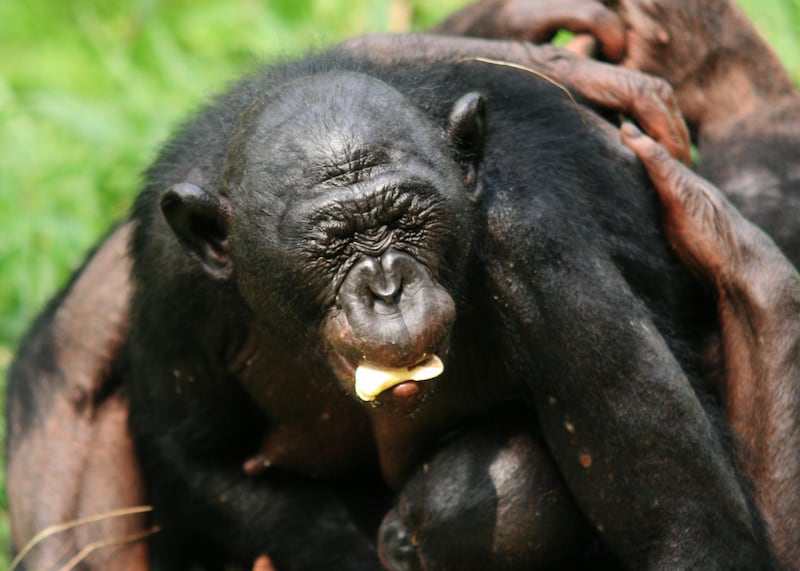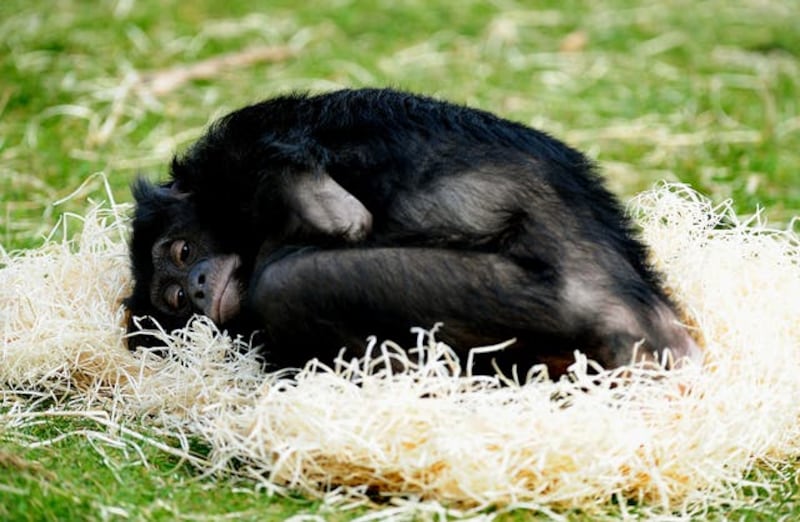It appears humans and bonobos share an unlikely trait in common: the desire to help others without being asked.
The friendly apes have been known to share food with strangers but new experiments show that they do it without expecting anything in return.
Researchers believe bonobos “may simply be eager to make a good first impression”, just like humans.
Anthropologists from Duke University in the US studied wild-born bonobos at the Lola ya Bonobo sanctuary in the Democratic Republic of Congo.
In one experiment, which involved bonobos being tempted with a piece of apple hanging from a rope that was just out of reach, the scientists found the apes selflessly helped others access the fruit, even if they were strangers.

To see how the bonobos behaved, the researchers set up two rooms that were separated by a fence, with the dangling apple in one room and the device to release the fruit in the other.
Then 16 bonobos, who were not familiar with each other, were introduced one at a time into the room with the apple.
Tests showed that bonobos were four times more likely to climb the fence to release the piece of apple – without any expectation for payback – when a bonobo was in the adjacent room to receive it than when the room was empty.
The researchers then added a fence with large holes so that the bonobos could stick their arms through and beg for food in some of the trials.
They found that the bonobos still helped the others, regardless of whether they were asked or not.

The scientists say that the impulse to feel for strangers isn’t entirely under conscious control.
Study author Dr Jingzhi Tan, a postdoctoral associate in evolutionary anthropology, said the impulse to be nice to strangers is likely to evolve in species where the benefits of bonding with outsiders outweigh the costs.
He said: “All relationships start between two strangers.
“You meet a stranger, but you may meet them again, and this individual could become your future friend or ally. You want to be nice to someone who’s going to be important for you.”
The results are published in the journal Scientific Reports.








